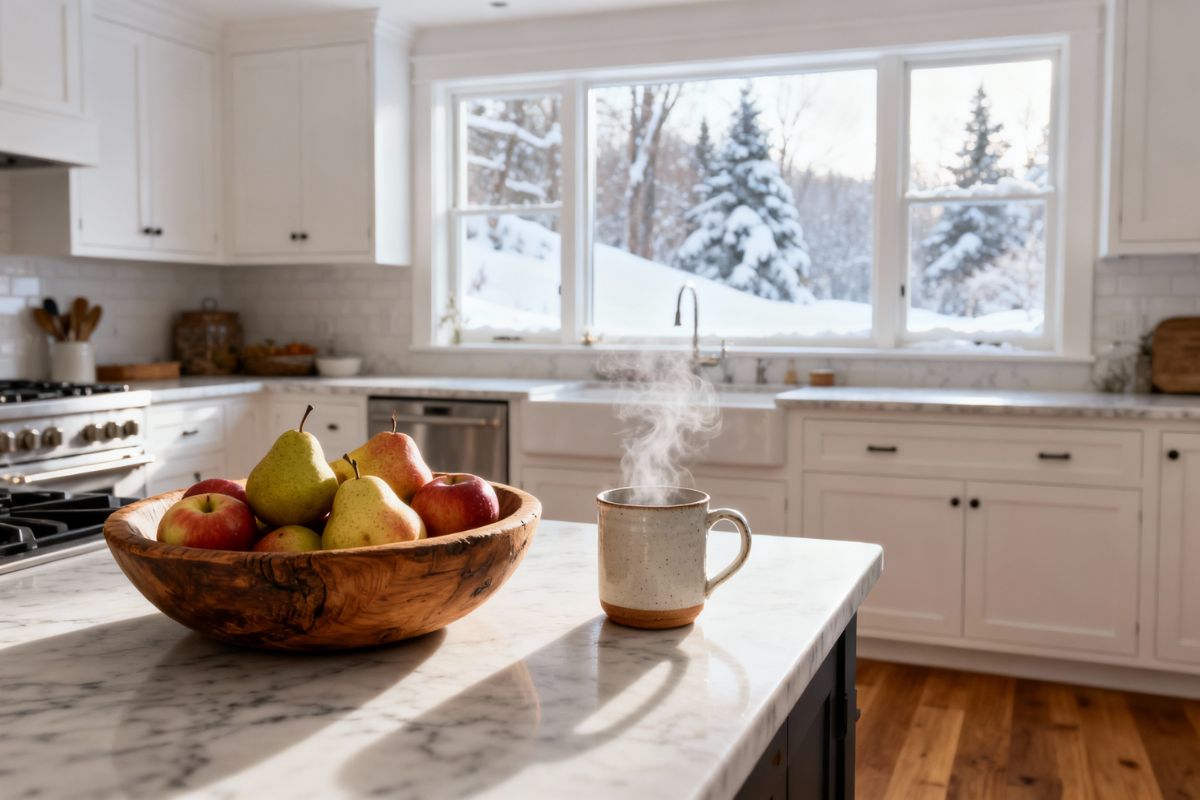North Carolina's Tiny Home Rules and Regulations

Choosing where to build your tiny home in North Carolina is a massive task because counties and cities within the state have varying rules and regulations on building tiny houses. Knowing these rules and regulations can spare you the stress of possible eviction and other potential issues regarding your stay in your tiny house.
Tiny homes are a good option for affordable housing. They are perfect for simple, minimalist, and sustainable living, which makes them undeniably attractive to homeowners.
However, it is challenging to build a tiny home because not all states in the U.S. are open to tiny homes. Only a few states are tiny house friendly, and fortunately, North Carolina is one of them.
This article will provide you with more information on the tiny home rules and regulations in North Carolina. You’ll find out what counties allow tiny homes, where you can build and where you can park them, as well as size and taxes details.
Let's jump in!
Are tiny homes legal in North Carolina?
Yes, tiny homes are legal in North Carolina. However, what a legal tiny home means may differ based on town, city, or county. Tiny homes constructed on foundations are accepted legally as houses you can live in, while tiny homes on wheels are not permanent homes even for a whole year.
Planning a tiny living in North Carolina may be challenging because each city or county has different building codes and requirements. These building codes vary due to the differing definition of tiny homes throughout the state.
The minimum size of a tiny home is one requirement that differs throughout the state. In most cities, such as Wilmington and Charlotte, tiny homes must have at least 150 square feet for the first dweller and an additional 100 square feet per additional house resident.
What North Carolina counties allow tiny houses?
Although people in North Carolina seem divided in their views on tiny houses, the state is generally open to tiny homes as an affordable option for students and low-income residents.
Here are some of the North Carolina counties that allow tiny houses:
1. Mecklenburg County
2. Buncombe County
3. Guilford County
4. Jackson County
5. Wake County
6. New Hanover County
7. Forsyth County
Some other cities and towns consider tiny homes. Check the local regulations first before building one.
Can you permanently live in a tiny house in North Carolina?
Yes, you can permanently live in a tiny house in North Carolina. However, it depends on the type of tiny house you are building or occupying because the state has building codes, zoning restrictions, and more regulations than other states.
Tiny homes on foundations can be permanent homes in North Carolina. Meanwhile, tiny homes on wheels are not allowed as permanent residences. One can only stay in the tiny homes on wheels for 180 consecutive days per year.
Tiny houses that fall into the accessory dwelling unit (ADU) category can be used as permanent homes. ADUs can be either detached or attached to your single-family home within your property.
How tiny can a house be in North Carolina?
Generally, a tiny house usually ranges between 60 to 400 square feet.
In North Carolina, the minimum size of a tiny house varies by county. In Jackson County - a habitable room must have at least 120 square feet of gross floor area. In Wilmington and Charlotte - at least 150 square feet and an additional 100 square feet for each new occupant.
On the other hand, Raleigh refers to tiny houses as buildings of less than 600 square feet in gross floor area.
In Asheville, the detached accessory dwelling units are up to 70 per cent of the primary dwelling but not larger than 800 square feet. The attached accessory dwelling units' maximum size is up to 70 per cent of the primary home but not larger than 1000 square feet.
Rules and regulations for tiny houses in North Carolina
Building codes, rules and regulations vary by town, city, or county. We will present below the relatively standard specs for tiny houses in North Carolina.
Rules for permanent structures
Here are the rules for permanent structures of tiny homes:
- The tiny home and its foundation must comply with the North Carolina State Residential Code.
- Tiny homeowners must get permits from the local jurisdiction.
- Tiny homes must meet the zoning and setback requirements and any community protective covenant requirements.
- There must be a habitable space, which is a space for living, sleeping, eating, or cooking.
- Habitable rooms must have at least 70 square feet of floor area, except for the kitchen area. It must not be less than 7 feet in the horizontal dimension.
- The height of ceilings must be a minimum of 7 feet for inhabitable spaces, bathrooms, toilet rooms, and hallways.
- Tiny homes must have a kitchen area with a sink.
- Owners should connect the plumbing fixtures to an approved sewage disposal system. Storage tanks are not acceptable.
- Tiny homes must have toilet facilities, such as a lavatory, water closet, a bathtub, or a shower.
- The dwelling unit must have a heating facility compliant with Section R303.8 of the North Carolina Residential Code.
- The tiny house must meet the means of egress requirements and energy conservation requirements as stated in N.C. Administrative Code.
Rules for temporary tiny houses
Temporary tiny houses are considered recreational vehicles (R.V.). The following are characteristics of an R.V.:
1. It is built on a single chassis.
2. It is 400 square feet or less in size when measured at the most extensive horizontal projections.
3. It is self-propelled or permanently towable by a light-duty truck.
4. It is for temporary living only.
The following are the rules for this type of tiny house:
- The electrical supply system must be installed and inspected.
- Permanently install a feeder for power supply. Otherwise, the power supply to the park trailer must be a feed assembly with not more than a 30-ampere or 50-ampere power supply cord with a securely attached cap.
- This type of tiny home should not have permanent plumbing or mechanical connections. Instead, they must be anchored temporarily for safety purposes. However, the wheels and axles must always remain on the unit.
- These tiny home units do not support accessory structures.
- They are not permanent dwellings in North Carolina. So, they must meet electrical code and inspection requirements.
Rules for transitional structures
Tiny homes are a solution for homeless people, rising housing costs, and high population density in North Carolina. Below are the rules for transitional structures:
- The tiny houses range from 180 to 500 square feet.
- The state requires monthly payments between $350 to $525 a month. The fee already includes utilities.
- The residents can live in transitional tiny houses for as long as they want, but they need to comply with the resident guidelines. They can refer to agencies for help.
If you want to know more specific requirements, check the local laws for more information.
Where can I build a tiny house in North Carolina?
You can build a tiny house in North Carolina in many cities, towns, counties, or rural areas. Many tiny house-friendly cities in this state provide opportunities for you to move or build a tiny house. These places give you privacy as well as access to a metropolitan area.
Building a tiny house in a rural area for a sustainable lifestyle is also possible since off-grid living is legal in North Carolina. However, this does not exempt in-depth building restrictions and zoning laws. You will have to have a permit and undergo inspections for any off-grid system you want on your property.
Do I have to pay property taxes for my tiny house?
Unlike traditional houses, there is no property tax imposed on tiny houses. However, you will have to pay property taxes on tiny houses on wheels because they are considered recreational vehicles in North Carolina. So, the property taxes applicable to mobile homes might apply.
Also, if your tiny transitional or permanent home sits on a piece of land you possess, you’ll have to pay real estate tax.
Where can I park a tiny home in North Carolina?
If you are living in your tiny house on wheels, you can park it at different campgrounds, R.V. parks, long-term parking, or beaches with short-term space rentals.
Since the tiny house on wheels is a recreational vehicle, it is illegal to live in it in your backyard. Other states prohibit the parking of R.V.s on or within sight of the street.
R.V.s are for recreational, camping, or travel purposes only. Unless you build the tiny house on an unmovable foundation, it can be your home only temporarily, for 180 days a year.
Are there tiny home communities in North Carolina?
Yes, there are many tiny home communities in North Carolina. These communities accommodate homeowners with parking for tiny houses on wheels, sewer, water, and electric hookups. Some communities also offer tiny homes that you can move in anytime.
In Flat Rock, Henderson County, most tiny house communities, such as The Village, offer green space and private and gated communities. They also have community gardens, pools, and dog parks.
There is also a nonprofit tiny house community in North Carolina to combat homelessness. It is called Tiny Houses Greensboro, where residents are required to help with home construction and actively engage in activities to improve the community.
Acony Bell is becoming a popular tiny house community in North Carolina. It features a clubhouse, hiking trails, beautiful landscape. It also offers vacation rentals for those who want to try the tiny life before building or moving into tiny houses.
Tip! Roofing Considerations for Tiny Homes
When planning your tiny home in North Carolina, selecting the right roofing system is crucial for both compliance and longevity. Flat roofs have become increasingly popular for tiny homes due to their space efficiency, modern aesthetic, and potential for rooftop gardens or solar panel installation. However, North Carolina's climate—with its heavy rainfall, humidity, and occasional severe weather—requires professional installation and maintenance to ensure proper drainage and waterproofing.
If you're considering a flat roof for your tiny home, consulting with experienced professionals like The Flat Roof Specialists can help ensure your roofing system meets state building codes and withstands local weather conditions. Whether your tiny home is on a foundation or designed as an ADU, proper roofing is essential for passing inspections and protecting your investment.
Conclusion
Transitioning to a tiny house needs careful planning and thorough research. It may be a bit of a hassle, but it can save you from unnecessary problems and violations.
We have presented the rules and regulations for building or moving into a tiny house in North Carolina. This information can guide you and give you a general idea of what you need to prepare and consider in your tiny house.
Visit Tiny House for more tips, guides, lifehacks, and other things you need to know about living in a tiny home.






.jpg)


.jpg)